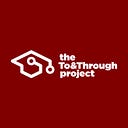To&Through Equity Stance

For the To&Through Project, equity work means:
We start with ourselves. The To&Through team is a small, close-knit group of analysts and practitioners who are deeply committed to helping schools in Chicago become places where students from the middle grades through post-secondary completion have the agency, resources, and preparation necessary to attain their aspirations and realize their full potential. We are an intentionally diverse group of individuals across a range of identities and experiences and we strive to create a highly personable, collaborative, and reflective culture that encourages people to bring their whole selves to this work. We live out our values (care for each other, practice anti-racism, have integrity, be creative and curious, and respect all forms of expertise) not only in the work we do, but also in the rituals and routines that hold our team together. We focus on building habits to recognize and disrupt the legacy and impact that white supremacy has on our daily lives, and we invest time, resources, and energy in holding space for the individual and collective reflections necessary to continually reimagine our approach to and opportunities for impact.
We live with dissonance and recognize that two truths can live in tension. There are tangible benefits of earning high grades, graduating high school and completing a college degree. For our society to become more just, we believe that more CPS students — particularly Black and Latinx students as well as other students in other marginalized student populations — need the access and support necessary to earn these degrees. We also acknowledge that schooling in America produces inequitable outcomes for Black and Latinx students by design rather than by accident. We recognize that working within existing systems can serve to enable the racist social structures we critique. On the other hand, we recognize that students and families (including some of our own) currently rely on this same system to deliver on the promises of providing equitable access to opportunities. We commit to grappling with this dissonance, particularly when it is most uncomfortable, in order to honor and learn from efforts to reimagine and reinvent the system happening in parallel to our own.
We are responsible stewards of data. Data can be a powerful tool for disrupting inequitable systems. However, we also know that statistical analyses, case studies, and other forms of data have no inherent value on their own, and that data and research are never neutral or objective. Our data can be used in many different ways. We own our responsibility to continue to highlight the patterns and disparities that we see in our data within the context of segregation and racist education policies that have plagued Chicago’s history and continue to shape its present reality. We seek to highlight the strength of communities of color in affecting change and honor students and educators as experts in their own experience, to amplify the collective wisdom of those most directly impacted by the practices and policies we explore. We use this on-the-ground data to help hold the adults that make up our systems accountable for change instead of putting that responsibility on students, families, and communities.
We address power dynamics in our partnerships. We acknowledge that power dynamics are intersectional, while choosing to center race due to its central role in our country’s history. We commit to reflecting on and owning our positionality as individuals and as a team that works at a university with a complicated and sometimes problematic relationship with Chicago communities. We use the credibility and platform afforded to us by our position at a respected research institution to draw attention to systemic inequities. We approach our work with humility, knowing that our efforts alone will never be sufficient to transform our education system into one that recognizes the strengths and humanity of all students. We commit to seeking out and highlighting the wealth of knowledge and lived experience that communities, leaders, educators, and students can bring to bear on the problems we work to solve.
